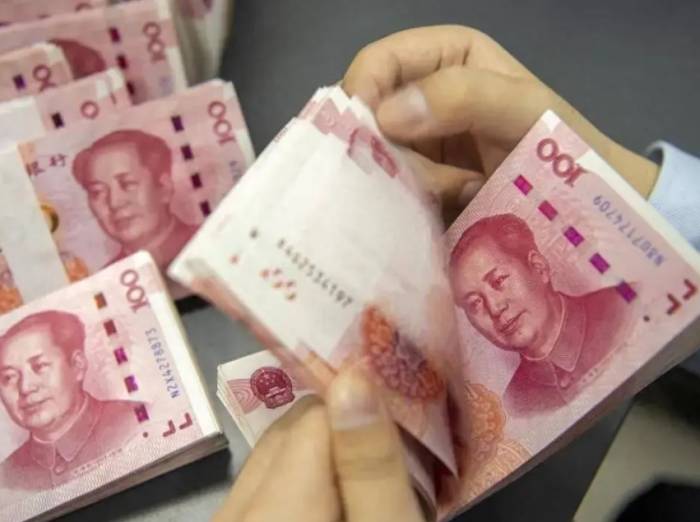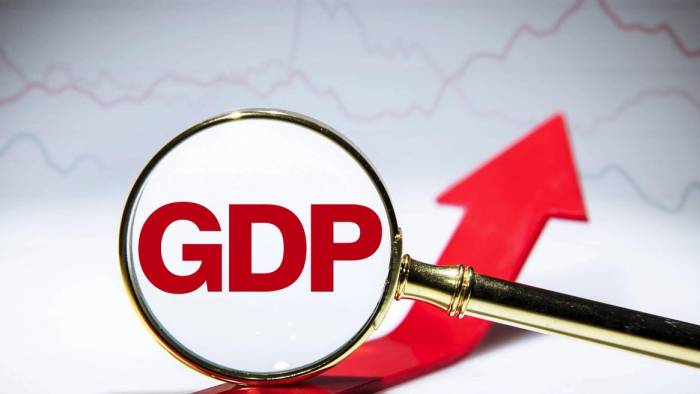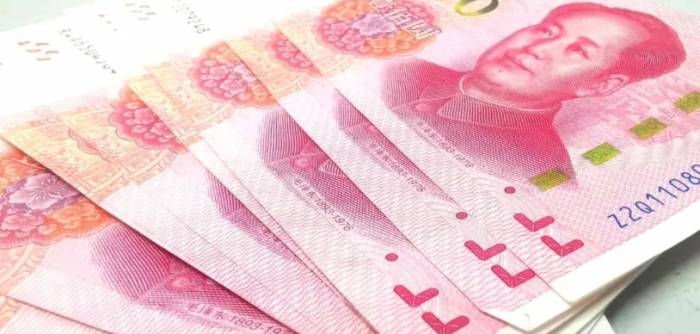On September 23rd, Wang Wentao, Minister of Commerce of China, and Guy Parmelin, Federal Councillor and Head of the Federal Department of Economic Affairs, Education and Research of Switzerland, jointly announced via video link the official launch of negotiations for the upgrade of the China-Switzerland Free Trade Agreement. Both parties agreed to work together diligently to expedite consultations and reach a high-level upgraded agreement based on mutual benefit and win-win outcomes as soon as possible.
The China-Switzerland Free Trade Agreement (hereinafter referred to as the "Agreement") was signed in July 2013 and came into effect in July 2014. The Agreement is the first free trade agreement signed by our country with a European continental country and also the first bilateral contract signed by Switzerland with a country outside the European Union.
Yan Shiqiang, Deputy Researcher at the European Institute of the Research Institute of the Ministry of Commerce, said in an interview with 21st Century Economic Report that the Agreement has played a positive role in promoting bilateral trade growth over the past 10 years since its implementation, and enterprises of both countries have truly benefited from it.
Yan Shiqiang introduced that in 2023, when the global trade scale decreased by about 5%, the bilateral trade volume between China and Switzerland increased by 4.4% against the trend, reaching 59.5 billion US dollars. From January to July 2024, the bilateral trade volume between China and Switzerland reached 43.8 billion US dollars, a year-on-year increase of nearly 20%.
Shortly after the signing and implementation of the Agreement, both China and Switzerland began to study the possibility of upgrading the free trade agreement. According to the Ministry of Commerce, in January 2017, China and Switzerland signed the Memorandum of Understanding between the Ministry of Commerce of the People's Republic of China and the Federal Department of Economic Affairs, Education and Research of Switzerland on the Upgrading of the China-Switzerland Free Trade Agreement, announcing the start of joint research on the upgrading of the China-Switzerland Free Trade Agreement.
In January 2024, China and Switzerland announced the completion of the joint feasibility study on the upgrading of the China-Switzerland Free Trade Agreement (FTA) and unanimously agreed to support the official upgrading negotiations as soon as possible. In February 2024, during his visit to China, Swiss Federal Councillor and Foreign Minister Cassis expressed the hope that the 75th anniversary of the establishment of diplomatic relations between China and Switzerland next year would be an opportunity to complete the upgrading of the free trade agreement, in order to better promote economic and trade exchanges and the development of relations between the two countries.
Jointly Formulate New High-Standard Economic and Trade Rules
Li Siqi, Associate Professor at the China WTO Research Institute of the University of International Business and Economics, said in an interview with 21st Century Economic Report that the China-Switzerland Free Trade Agreement is a high-quality, rich in content, and mutually beneficial and win-win agreement."Currently, the tariff concession arrangements between China and Switzerland have been basically implemented, with about 90% of the product tariff lines between the two countries having achieved zero tariffs, creating favorable conditions for enterprises of both countries to expand mutual exports." Li Siqi said that under the China-Switzerland Free Trade Agreement, both parties have a very broad space and prospects for economic and trade cooperation, which also hedges against the risks brought by the uncertainty of the global economic and trade environment.
Li Siqi analyzed that the initiation of the China-Switzerland Free Trade Agreement upgrade negotiations demonstrates China's unwavering determination to expand its opening up to the outside world. The launch of the China-Switzerland Free Trade Agreement upgrade negotiations is a practical measure to implement the important arrangements of the third plenary session of the 20th Central Committee of the Communist Party of China, and it is an important practice for China to participate in the formulation of high-standard international economic and trade rules. At present, China continues to promote high-level opening up, has accumulated valuable experience, and has taken many open measures in the fields of investment and service trade, all of which have laid a good foundation for the launch of the China-Switzerland Free Trade Agreement upgrade negotiations and will also bring new opportunities for Swiss enterprises to enter the Chinese market.
Li Siqi pointed out that the China-Switzerland Free Trade Agreement has a broad space for upgrade. Through the upgrade negotiations, both parties will further enhance the level of market opening for goods trade between the two countries, promote more products to be included in the zero-tariff list, and expand market access for service trade and investment. At the same time, the current international trade environment has undergone new changes, with green development and digital transformation becoming new trends. Both parties will also jointly formulate new high-standard economic and trade rules in the fields of digital economy, green economy, and competition policy.
Regarding the official launch of the free trade agreement upgrade negotiations between China and Switzerland, Yan Shiqiang also said that this will further enhance the level of market opening for goods trade between the two countries, promote more products to be included in the zero-tariff list, and expand market access for service trade and investment. At the same time, both parties will also jointly formulate new high-standard economic and trade rules in the fields of digital economy, green economy, and competition policy.
Yan Shiqiang further analyzed that the official launch of the free trade agreement upgrade negotiations between China and Switzerland will further negotiate a higher level of upgrade agreements on the basis of the existing free trade agreement, which is of great significance to both countries.
"Firstly, it demonstrates China's unwavering determination to expand its opening up to the outside world. The launch of the China-Switzerland Free Trade Agreement upgrade negotiations is a practical measure to implement the important arrangements of the third plenary session of the 20th Central Committee of the Communist Party of China. Both parties will further enhance the level of market opening for goods trade between the two countries through the upgrade negotiations, promote more products to be included in the zero-tariff list, and expand market access for service trade and investment." Yan Shiqiang said.
Yan Shiqiang pointed out that secondly, this will be conducive to further expanding bilateral trade and promoting two-way investment. China has been Switzerland's third-largest trading partner for 10 consecutive years, and Switzerland is also China's sixth-largest trading partner in Europe. Both parties will further expand mutual openness through the upgrade of the free trade agreement, creating more favorable and convenient conditions for enterprises of both countries to carry out trade and investment cooperation, fully exerting the comparative advantages of both countries, and promoting the in-depth integration and development of industrial chains and supply chains.
Yan Shiqiang believes that lastly, this sends a positive signal to the world that both countries support free trade and open cooperation. This fully reflects the firm determination and practical actions of China and Switzerland to build an open and standardized international economic and trade cooperation environment, and to jointly support and promote economic globalization and trade liberalization. Against the background of the current backlash against economic globalization and the rise of trade protectionism, the launch of the free trade agreement upgrade negotiations between China and Switzerland is of special importance.
The China-Switzerland Free Trade Agreement has three aspects of upgrade space."The upgrade of the China-Switzerland Free Trade Agreement will deepen the economic and trade cooperation between the two countries, bringing broader development opportunities for businesses in both nations and benefiting China's economic development. China's development cannot be separated from the world, and the world's development also needs China," said Li Siqi.
Li Siqi pointed out that conducting negotiations for the upgrade of the China-Switzerland economic and trade agreement helps our country to further build a high-standard free trade zone network, participate in setting high-standard international economic and trade rules, and support high-level opening up to the outside world.
Regarding the upgrade space of the China-Switzerland Free Trade Agreement, Liu Yizhuo, a researcher at the E-commerce Research Institute of the Academy of International Trade and Economic Cooperation of the Ministry of Commerce, pointed out in "The 10th Anniversary of the China-Switzerland Free Trade Agreement: Sharing the Fruits of Openness" that based on the tariff structure and the current status of bilateral trade and investment cooperation between China and Switzerland, the future upgrade space of the China-Switzerland Free Trade Agreement will mainly focus on three aspects.
Firstly, to promote further market opening and share the dividends of openness. The WTO Most-Favored-Nation tariff levels and structures between China and Switzerland differ significantly, which to some extent affects the utilization rate of the China-Switzerland Free Trade Agreement. In the agreement, Switzerland has implemented zero tariffs on all Chinese-origin industrial products since its effectiveness, but zero tariffs have not yet been achieved for agricultural products such as vegetables, fruits, and poultry meat, which are of significant export interest to China.
To enhance the utilization rate of the China-Switzerland Free Trade Agreement by enterprises and achieve mutual opening and win-win results, both parties can focus on further negotiations on tariff reductions for goods of mutual concern during the upgrade negotiations of the China-Switzerland Free Trade Agreement. For example, China can request Switzerland to make further tariff reduction commitments on agricultural products of significant export interest such as fruits, vegetables, and their products, poultry meat, etc.; Switzerland can also request China to further reduce tariffs on goods of concern such as watches.
Secondly, in recent years, China has signed new free trade agreements such as the Regional Comprehensive Economic Partnership (RCEP), aligning with international high-standard economic and trade rules such as the Comprehensive and Progressive Agreement for Trans-Pacific Partnership (CPTPP). These agreements not only include traditional issues but also add new topics such as e-commerce, small and medium-sized enterprises (SMEs), and government procurement. Since the China-Switzerland Free Trade Agreement was signed earlier and fully considered China's actual development level and the current acceptable extent, it includes new rule topics such as government procurement, environment, intellectual property rights, and competition, but does not cover the aforementioned new topics. In addition, most of the topics in the China-Switzerland Free Trade Agreement are only generally described "soft constraints" and have not made substantive commitments. The positive list opening model is still used in the fields of investment and service trade.
In the upgrade negotiations, it is necessary to align with international high-standard economic and trade rules, add new topics such as e-commerce, SMEs, and government procurement, achieve negative list mode opening in the fields of investment and service trade, and achieve more diversity, flexibility, and comprehensiveness in the field of rules of origin, to provide support for enterprises to utilize the "agreement".
Thirdly, to play the role of the adhesive of the China-Switzerland Free Trade Agreement and expand bilateral economic and trade cooperation channels. Fully leverage the China-Switzerland economic and trade joint committee mechanism to assist Chinese enterprises in investing in Europe and the incubation and landing of Swiss technology in China, to achieve mutual benefit and win-win results for both parties. Refine the content related to industrial cooperation in the economic cooperation chapter of the China-Switzerland Free Trade Agreement, leverage the complementary advantages of both parties in capital, market, and technology, and create more favorable conditions for the development of bilateral trade and investment. Explore incorporating the joint promotion of the "Belt and Road" construction as a chapter content in the upgrade of the China-Switzerland Free Trade Agreement, strengthen third-party market cooperation in energy, transportation, and other fields in "Belt and Road" co-building countries, and enhance the viscosity of the industrial and supply chains of the two countries.






























Add your perspective